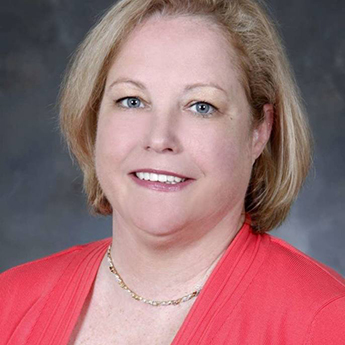Trial Master File (TMF)/eTMF, & FDAs Draft Guidance for Electronic Records/Signatures Used in Clinical Trials
Companies engaged in the conduct of human clinical trials must adhere to specific government regulatory requirements.
Certain documents, content and images related to a clinical trial must be stored and maintained, and depending on the regulatory jurisdiction, this body of information may be stored in a trial master file (TMF). All of the data and documents supporting the planning, conduct and evaluation of a clinical trial must be of the highest integrity, which must be maintained through their entire life cycle. Computer System Validation will be discussed as a key methodology for meeting all of these requirements and assuring data/document integrity.
The TMF includes all of the documentation that a sponsor must record to demonstrate that they have met their obligations for the conduct of a clinical trial. Alternately, an electronic Trial Master File, or eTMF, can be used to collect/create and manage all of the necessary data and documentation. We will discuss the benefits and challenges of moving to an eTMF, or maintaining a hybrid solution that includes both a paper TMF and eTMF.
The Code of Federal Regulations states in 21 CFR 312.50:
"Sponsors are responsible for ensuring that the investigation(s) is conducted in accordance with the general investigational plan and protocols contained in the IND."
The European Directive 2005/28/EC states:
"trial master file shall consist of essential documents, which enable both the conduct of a clinical trial and the quality of the data produced to be evaluated."
ICH GCP, Section 8.1 describes "essential documents" as those that individually and collectively permit the evaluation of the conduct of a trial and the quality of the data produced.
A consolidated guidance for industry on Good Clinical Practice (GCP) in 1996 was published by the International Conference on Harmonization (ICH). The objective was to provide a unified standard for the United States, European Union, and Japan to facilitate mutual acceptance of clinical data by the regulatory authorities in these global jurisdictions.
The ICH document provided guidance for companies in all ICH regions to establish trial master files that contain key documents that enable the evaluation of the conduct of a trial and the quality of data produced uniformly by all jurisdictions involved. In the US, there is no specific requirement from FDA for companies to prepare a trial master file, but if the regulatory authority requires ICH GCP to be followed, then there is consequently a requirement to create and maintain a trial master file.
Documents contained in the TMF must be available for inspection by the appropriate regulatory authorities at any time during and after the conduct of a clinical trial, and must be submitted to support the request for product approval. This is true for pharmaceuticals, biologics and medical devices. More recently, tobacco and tobacco related products have come under regulation by FDA, and will also be discussed.
- Learn how to identify “GxP” Systems
- Learn about FDA’s current thinking about technology and software development, and how this will impact industry
- Understand the complexities and challenges of validating systems used in clinical trial work, and how to strive for greater interoperability of the many systems involved and streamline the workflows
- Understand the importance of developing a data governance approach to managing the vast amounts of data and documents generated as part of a clinical trial
- Learn about electronic Trial Master Files (TMFs) and how these should be prepared, including the essential documents for three phases of a trial: before starting, during execution, and after completion of work
- Learn about the System Development Life Cycle (SDLC) approach to validation, and how the traditional Computer System Validation (CSV) and newer Computer Software Assurance (CSA) approaches compare
- Learn the pros and cons of an Agile vs. Waterfall approach
- Learn about cloud computing and Software as a Service (SaaS) systems that can be embraced and validated effectively
- Understand how to maintain a system in a validated state through the system’s entire life cycle
- Learn about the policies and procedures needed to support your validation process and ongoing maintenance of your systems in a validated state
- Finally, understand the industry best practices that will enable you to optimize your approach to validation and compliance for key systems used in clinical investigations based on risk assessment to ensure data integrity is maintained throughout the entire data life cycle
- GxP Data and Computer Systems Regulated by FDA
- Computer System Validation (CSV)
- The System Development Life Cycle (SDLC) Methodology
- Risk Assessment
- GAMP®5 Software Categorization
- Validation Strategy and Planning
- Functional Requirements Specification (FRS)
- Design/Configuration Specifications
- Installation Qualification (IQ)
- Operational Qualification (OQ)
- Performance Qualification (PQ)
- System Acceptance and Notification of Release into Production
- Maintenance and Operational Support of FDA-Regulated Computer Systems
- Policies and Procedures to Support CSV
- Training and Organizational Change Management (OCM) Supporting CSV Activities
- Trial Master File (TMF) background and rationale
- The essential documents to include in a TMF
- Organizing and maintaining a TMF
- Standard Operating Procedure required to support TMF
- Inspection of TMF records
- Electronic TMF (eTMF)
- Q&A
Anyone involved in a clinical investigation with responsibility for data, documents, and other artifacts that must be created and maintained with integrity must understand how systems interact, how data flows, and how these critical assets are managed through their entire life cycle. In particular, they are regulated by FDA and must meet all Agency requirements, including those for validation, 21 CFR Part 11, the FDA's guidance for electronic records and electronic signatures, data integrity, and Good Clinical Practice (GCP).
Whether you are working for a Clinical Sponsor, CRA, laboratory testing clinical trial samples, or in any way involved in the mechanics of setting up a clinical TMF or eTMF, you will benefit by learning about how to meet compliance, improve the quality of data, documents, and artifacts, and reduce overall costs.
- Information Technology (IT) Analysts
- IT Developers
- IT Support Staff
- IT Security Staff
- QC/QA Managers and Analysts
- Production Managers and Supervisors
- Supply Chain Managers and Supervisors
- Clinical Data Managers and Scientists
- Compliance Managers and Auditors
- Lab Managers and Analysts
- Computer System Validation Specialists
- GMP, GLP, GCP Training Specialists
- Business Stakeholders using Computer Systems regulated by FDA
- Regulatory Affairs Personnel
- Consultants in the Life Sciences and Tobacco Industries
- Interns working at the companies listed above
- College students attending schools and studying computer system validation, regulatory affairs/matters (related to FDA) or any other discipline that involves adherence to FDA regulatory requirements
Carolyn Troiano has more than 35 years of experience in computer system validation in the tobacco, pharmaceutical, medical device and other FDA-regulated industries. She has worked directly, or on a consulting basis, for many of the larger pharmaceutical and tobacco companies in the US and Europe. She is currently building an FDA computer system validation compliance strategy at a vapor company. Carolyn has participated in industry conferences, and is currently active in the Association of Information Technology Professionals (AITP), and Project Management Institute (PMI) chapters in the Richmond, VA area. Carolyn also volunteers for the PMI’s Educational Fund as a project management instructor for non-profit organizations.
Upcoming Webinars











































































